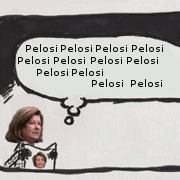|
The house is so dirty. Like literal dirt everywhere and old televisions.
|
|
|
|

|
| # ? Jun 4, 2024 03:04 |
|
minivanmegafun posted:Man, I was lamenting my credit union's inability to use encryption when emailing PII around, sounds like I got off easy.
|
|
|
|
I have a question tangentially related to this thread. We're renting a house that was on the market for sale but they couldn't find a buyer so they put it up for rent because they didn't want it standing empty through the winter. It's a nice house and if we were in a position to buy we'd be seriously considering it. I had wondered why it had been on the market for so long until I met the realtor/property manager. She's godawful. Always 10-15 minutes late to appointments, has tried to blow me off twice: once offering the excuse that she was still in her pajamas (at 10 AM) and didn't feel like getting dressed, and once because I wanted to come in 45 minutes before their office closed and she didn't feel like printing off the (two page) lease and doing paperwork at the end of the day. When I went to actually sign the lease it took maybe 30 minutes tops so it's not like I would've kept her past closing. Then when I went to get the keys she forgot I was coming-- then gave me the wrong set of keys so I couldn't even get into the house. This is just for renting, I cannot imagine how badly she'd gently caress up a sale. I would imagine the homeowners (who moved away and are doing this remotely) might like to know they've hired the worst real estate agent in the world. Would it be worth it to try to contact them and let them know? Or should I just go about my business because it's not my problem?
|
|
|
|
Aquatic Giraffe posted:I have a question tangentially related to this thread. It's just a moral judgement call. If you like the owners, then you should let them know. However, it's possible that the property manager is not the same person as the real estate agent. Many real estate agencies offer property management services, but many others will just recommend you to someone else. Maybe look up the old listing and see if you can figure out whether it's the same person.
|
|
|
|
skylined! posted:Need some advice. We put in an offer on a house, got it at the price we want with seller offering to pay $6500 in closing costs. I am trying to figure out which lender to go with, and no one (especially me) can decipher this bullshit. You should run (don't walk) away from this situation. Seriously, do not do this, it is very likely a bad idea.
|
|
|
|
QuarkJets posted:You should run (don't walk) away from this situation. Seriously, do not do this, it is very likely a bad idea. Yea probably. I'm open for your take on exactly why.
|
|
|
|
Also if your closing costs come in under what you've negotiated with the seller, they can't cut you a check for the balance. You can always use the balance to buy down the interest rate though. Basically once you've negotiated with the seller on closing costs there's a very limited number of things that credit can be used for.
|
|
|
|
skylined! posted:Yea probably. I'm open for your take on exactly why. Not enough money down. FHA mortgage insurance is forever, now. Financing the up front MIP. Seller paying closing costs is nice, but... did you negotiate for that because you have no cash? Signs all point to "you actually have very little savings and actually can't afford to buy this house right now." But that's just me, maybe Quarkjets has a different opinion.
|
|
|
|
Leperflesh posted:Not enough money down. FHA mortgage insurance is forever, now. Financing the up front MIP. Seller paying closing costs is nice, but... did you negotiate for that because you have no cash?
|
|
|
|
skylined! posted:Yea probably. I'm open for your take on exactly why. I thought that I made my opinion clear when you posted in this thread about 2 weeks ago. It's a bad idea to buy a house with less than 20% down, but it's an especially bad idea to buy a house with less than 5% down. It's a bad idea to buy a house and leave yourself with no cash It's a bad idea to buy in a city that you've never lived in before It's a bad idea to give yourself a deadline of a few weeks to go looking for houses It's a bad idea to buy in a high-risk flood zone (houses don't marked "high risk" for flooding without a good reason, despite your incredulity; and no, the $6k closing cost concession is not really enough compensation for this, the fact that the seller immediately gave you that much should be a big red flag) You should look at the rental market and then keep an eye out for houses that you like while you build up a down payment.
|
|
|
|
But how else can you have a house that's both metaphorically and literally underwater? 
|
|
|
|
Denver goons, is the real estate market there still completely retarded? I'm considering transferring out there and assume it is but don't know. Is it mainly a thing with Denver and the immediate suburbs or does it extend up to say, Longmont which is probably where I'd be working?
|
|
|
|
fknlo posted:Denver goons, is the real estate market there still completely retarded? I'm considering transferring out there and assume it is but don't know. Is it mainly a thing with Denver and the immediate suburbs or does it extend up to say, Longmont which is probably where I'd be working? Yes its still crazy, and yes, it extends to Longmont as well. The rental market isn't much better.
|
|
|
|
fknlo posted:Denver goons, is the real estate market there still completely retarded? I'm considering transferring out there and assume it is but don't know. Is it mainly a thing with Denver and the immediate suburbs or does it extend up to say, Longmont which is probably where I'd be working? Abandon all hope... ...unless you're a software engineer ir something. Then just throw cash around.
|
|
|
|
skylined! posted:Yea probably. I'm open for your take on exactly why. This house is going to flood. That's why.
|
|
|
|
Seriously, flood maps are actually well-researched pieces of reference literature and you should pay attention to them. Researching the neighborhood's flood map should be one of the things that you do during an inspection period. Places with elevated flood risk are usually marked that way because they've been flooded before, or the plot might flood regularly, if you look at a several-decade time scale
|
|
|
|
House boat on a dry-dock on a foundation is the only proper way to live in a flood plain.
|
|
|
|
Also I imagine you might have trouble securing financing on a flood-prone house. I know my appraisal included a copy of the flood map for my area (which pretty much said the only way your home would flood is if you built it in the Chicago River)
|
|
|
|
skylined! posted:Standardized stuff: FHA loan , 3.5% ($4,550) down, $2,195 in financed up front mortgage insurance; so the loan is for $127,645 regardless of lender Don't put 3.5% down on a loan, what are you doing. In ten years you'll have paid way more than 6500 in PMI.
|
|
|
|
I'm beginning to really understand "do never buy". The seller's agent has been a pain in the rear end to work with. Latest thing, they didn't respond to our inspection objection until 5pm, having had the objection for over 3 days. Seller refused to replace a broken window, which we pushed back on, so the seller's agent instructed my agent and I to call the seller directly at 10pm, to resolve the issue. Ended up getting a closing credit, and signing the paperwork to resolve inspection, just in time to make the deadline and for my agent to hop on a plane. Prospective buyers - run far far away. Do never buy.
|
|
|
|
I sure hope the fed rate increase doesn't hit mortgage rates in the next month. We're going for a second look at a house around the corner from us on Monday, and will likely be putting in an offer that afternoon or Tuesday. Even with worst case scenario sale price for our current house, we'll still have 20% of the new house value worth of equity net to bring forward for the new mortgage. It'll be nice to go from 1800sqft/2car garage to 2600sqft/3car garage with only an extra ~$250/mo on the mortgage, especially when current mortgage is only 15% of take-home. The challenging part will be the interim period, our market is strong right now without a lot of inventory, so the sellers likely won't accept a contingency based upon sale of our current house. We'll throw it in the offer anyways and see what they come back with, but if no then we'll have to explore bridge loan options, ugh. The last 3 houses to sell in our neighborhood (all custom, mostly brick, etc) sold within an average of 45 days from listing, so i'm not too concerned about selling ours, but still - second time homebuyer is almost more nerve-wracking than the first! e: Timing and luck is everything in home ownership, we got lucky as hell with our first home purchase. We slid in right under the wire for the first time homebuyer tax credit, the sellers were motivated, and we got one of the smallest houses in a nice neighborhood. If we can sell for our target price, it'll have appreciated $22,500 in 5 years. devmd01 fucked around with this message at 18:13 on Dec 17, 2015 |
|
|
|
I'd assume rates are already up for anyone that doesn't have a locked rate.
|
|
|
|
Fed rates and mortgages rates are not as correlated as you would think. The Fed will prop down mortgage rates as a housing crash will kill the economy. Operation twist is still in full effect.
|
|
|
|
skylined! posted:Also the home is in a high-risk flood zone (property is near a creek, gently caress fema), so we get to pay $1100 annually for flood insurance. skylined! posted:(remember, flood zone), skylined! posted:homeowner's/flood premiums (accurate) skylined! posted:homeowners/flood skylined! posted:the flood zone thing) OK here is what a flood zone is. I'm going to use "The 100-year Floodplain" since that's what FEMA usually means and uses in its floodplain maps. The 100-year floodplain is the actual, measured, area a 100-year flood will cover. What is a 100-year flood? The 100-year flood is the level of inundation (water depth over land and covered area) that has a 1 in 100 chance of happening in a given year. So, for example, if you bought a home in a 100-year floodplain (or God Forbid a 50-year flood plain) that means that every single year God rolls a 100-sided dice and if it comes up "Flood" your house gets hosed. Every year. It's like a dice- past rolls don't mean anything about future rolls. You can roll 10 1's in a row no problem. You can get 100-year floods 2 times in one year, none for 2 years, then get flooded again. It's probability over time and there is no possible way to beat it. Bein on the 100-year flood plain means your house is going to flood it's just a matter of time and definitely sooner than you think. The reason the sellers "gave you a break" on the price and then offered 6500 straight up in closing is because they're loving desperate to get out of their constantly-flooding house. gently caress insurance, gently caress mortgage rates, gently caress downpayments- if you were a millionaire paying cash up front buying a house in a floodplain is loving retarded and you should never ever do it. Save yourself two decades of pain and heartache and save some more, rent, live in a van, whatever, don't buy a home in a floodplain.
|
|
|
|
Uncle Enzo posted:Bein on the 100-year flood plain means your house is going to flood it's just a matter of time and definitely sooner than you think. Hey, not necessarily, climate change could dry out the land!
|
|
|
|
Uncle Enzo posted:OK here is what a flood zone is. I'm going to use "The 100-year Floodplain" since that's what FEMA usually means and uses in its floodplain maps. The 100-year floodplain is the actual, measured, area a 100-year flood will cover. What is a 100-year flood? The 100-year flood is the level of inundation (water depth over land and covered area) that has a 1 in 100 chance of happening in a given year. So, for example, if you bought a home in a 100-year floodplain (or God Forbid a 50-year flood plain) that means that every single year God rolls a 100-sided dice and if it comes up "Flood" your house gets hosed. Every year. It's like a dice- past rolls don't mean anything about future rolls. You can roll 10 1's in a row no problem. You can get 100-year floods 2 times in one year, none for 2 years, then get flooded again. It's probability over time and there is no possible way to beat it. Bein on the 100-year flood plain means your house is going to flood it's just a matter of time and definitely sooner than you think. You are absolutely, 100% correct, but you should also be aware that there are places in this country where basically 100% of the property is in a 100-year flood plain. Like, entire cities, entire counties. And you can mitigate that poo poo with appropriate construction. A huge number of people simply have their heads in the sand about it, though, and you're right to emphasize this because there are literally millions of Americans who wilfully ignore their decision to live in a house that is more-or-less statistically guaranteed to be flooded during their lifetimes. But realistically, a lot of those people simply don't have a choice but to live near their jobs in houses they can afford (although they can choose to rent them instead of buying them). See also: houses built on cliffsides (all cliffsides are eroding, that's what makes them cliffsides), houses built along fault lines, houses built near volcanoes, etc. Add in rising sea levels, and you're talking a pretty significant fraction of American homes built in spots that are very likely to see really serious damage in the next 50 years. Mine included. Which is why I have earthquake insurance, have strapped my heavy bookshelves to studs, and keep an earthquake kit in the garage. The key thing I think is that if you are not going to have any equity in your house for the next 8 years, you better make sure the entirety of your mortgage is covered by your flood insurance after deductible.
|
|
|
|
My grade school was built in a Special Flood Hazard area, which has "at least a 1 in 4 chance of flooding during a 30-year mortgage" They tore it down after it had been standing about 55 years, and I think it had been flooded at least 20 times, and according to the school district each flood cost $300k to clean up.
|
|
|
|
Leperflesh posted:You are absolutely, 100% correct, but you should also be aware that there are places in this country where basically 100% of the property is in a 100-year flood plain. Like, entire cities, entire counties. And you can mitigate that poo poo with appropriate construction. I was about to chime in that there is no piece of land in the greater New Orleans area I live in that is not in a 100 year flood zone. And what was the original poster saying flood insurance cost him at year, like $1500? Hah. Ours was at 2200 just before they readjusted to allow for inheriting previous owners insurance rates and now we are down to 1800 with a gradual increase every year. We have new elevation maps coming out any day now which should shave off a big chunk, though, due to new infrastructure and pumping systems.
|
|
|
|
Technically a 100 year flood is the magnitude of flood that you expect to occur once every hundred years, on average, or has a recurrence interval of 100 years. You can pick the number of years and find the statistic all you want. You would probably be better off finding the 5 year flood height/severity so you know what you are looking at. My place in the high desert has 100 year flood statistics, but they aren't the same as the statistics for New Orleans. If the height is anything meaningful you should pay attention, though. And meaningful in this sense can be as little as a few inches. But I'd recommend finding the data, probably from the USGS, on the shorter recurrence interval stuff. If the 5 year floods are like 2 feet high that's more trouble than you want to deal with.
|
|
|
|
|
minivanmegafun posted:Also I imagine you might have trouble securing financing on a flood-prone house. I know my appraisal included a copy of the flood map for my area (which pretty much said the only way your home would flood is if you built it in the Chicago River) I'm basically 300 yards from a river, but also, about 200 feet up. Not too worried about flooding, more worried about erosion.
|
|
|
|
minivanmegafun posted:My grade school was built in a Special Flood Hazard area, which has "at least a 1 in 4 chance of flooding during a 30-year mortgage"
|
|
|
|
We've got a local restaurant here that floods every time the river comes up. They get ~6' of water throughout the entire place and then clean it back up afterward. Every time. It's kind of amazing actually.
|
|
|
|
Leperflesh posted:You are absolutely, 100% correct, but you should also be aware that there are places in this country where basically 100% of the property is in a 100-year flood plain. Like, entire cities, entire counties. And you can mitigate that poo poo with appropriate construction. Oh I hear you, but from the poster themselves the home needs flood insurance because it's along a small creek, meaning he could just buy a house not near that small creek, or a different house higher up the hill, or just about any house but that one. Is his house on the point bar or the cut bank? What's his vertical offset from the base of the thalweg? All good questions that I bet you 5 bucks he doesn't know the answers to, which is why I gave my blanket advice. Places like New Orleans are kind of a different class where floodplains have to take into account hurricane likelyhoods and a bunch of other stuff, plus you've got the levees and analyzing risk in man-made structures is a whole other ball game. If he was buying in one of those Iowa counties near the Mississippi or something that'd be different too, but honestly this dude doesn't seem to understand what a floodplain even is. Here's some info from the US Geological Survey about 100-year floods: http://pubs.usgs.gov/gip/106/pdf/100-year-flood_041210web.pdf USGS posted:During the span of a 30-year mortgage, a home in the 1-percent AEP (100-year) floodplain has a 26-percent chance of being flooded at least once during those 30 years! The value of 26 percent is based on probability theory that accounts for each of the 30 years having a 1-percent chance of flooding. Just imagine if his home is actually in the 10-year flood plain! Uncle Enzo fucked around with this message at 22:16 on Dec 17, 2015 |
|
|
|
I didn't see him actually say what kind of flood zone it was, there're many different ratings and the scale isn't from "you're hosed 10-year flood risk" to "1 in 4 chance you're hosed 100-year flood risk," they actually go all the way out to "meh you're almost certainly fine 500-year flood risk." My house is actually in a rated flood zone too, I'm required to have flood insurance for a mortgage, but the rating is an X, there's a 0.2% chance every year of a flood. The practical effect is that I or whoever owns my home in the future needs to pay an extra $450ish a year for insurance, it's not that big a deal, I pay the same amount for earthquake insurance which isn't required but not a bad idea(Alaska). Like everything else it's not a black or white issue.
|
|
|
|
My State Farm agent asked if I wanted earthquake insurance in Chicago, I said nah.
|
|
|
|
Flood Zone X is everthing that isn't in a greater flood zone and doesn't have to have flood insurance unless that's a specifc requirement by your lender? I guess lenders can require it for any zone, but federally it isn't a lending requirement outside of the 100-year flood plain. Is that an Alaska specific requirement? https://www.floodsmart.gov/floodsmart/pages/about/when_insurance_is_required.jsp With that said you are right, the OP didn't specify the exact flood zone it it could just be a lender like yours that wants it for everything.
|
|
|
|
I believe there's actually 2 versions of X flood zones for... reasons, FEMAs own description of the zones mentions shaded and unshaded versions of X in regards to flood maps. It could be lender specific I suppose or because we're near a boundary where the risk changes, I know some other houses in our neighborhood have worse ratings(and higher insurance costs). Anyways the point is this thread can be very negative about home ownership, often for good reason, but I wanted to point out some of the doom and gloom is a little out of proportion. As others pointed out a blanket no to any house to any house in a flood zone in tantamount to saying don't ever own a house in some areas of the country. I wouldn't really want to own a house in an actual flood plain either and wouldn't advise someone should but not knowing what kind of zone the OPs prospective house is in we can't really say one way or another whether it'd be a stupid idea. I would like to point out that that if it is in a high risk area you need to keep in mind that prices for flood insurance in those areas are heavily subsidized and those subsidies have been in the crosshairs of reformers recently. Rates could skyrocket if they get thier way, this is more of a concern for very high risk areas though where the subsidies have their biggest affect. Elem7 fucked around with this message at 00:25 on Dec 21, 2015 |
|
|
|
Leperflesh posted:You are absolutely, 100% correct, but you should also be aware that there are places in this country where basically 100% of the property is in a 100-year flood plain. Like, entire cities, entire counties. And you can mitigate that poo poo with appropriate construction. You should get the rebuild cost covered by insurance, not necessarily your mortgage. If you have a big brick house in a rural area your rebuild cost could be more than the mortgage, but for most it will be less.
|
|
|
|
Elem7 posted:I didn't see him actually say what kind of flood zone it was, there're many different ratings and the scale isn't from "you're hosed 10-year flood risk" to "1 in 4 chance you're hosed 100-year flood risk," they actually go all the way out to "meh you're almost certainly fine 500-year flood risk." My house is actually in a rated flood zone too, I'm required to have flood insurance for a mortgage, but the rating is an X, there's a 0.2% chance every year of a flood. The practical effect is that I or whoever owns my home in the future needs to pay an extra $450ish a year for insurance, it's not that big a deal, I pay the same amount for earthquake insurance which isn't required but not a bad idea(Alaska). Well, the flood risk really wasn't the largest issue; the largest issue was 3.5% down with no emergency money. But if you want to talk about flood insurance, then yeah, being in a flood zone can be a non-issue, that's true. However, the OP mentioned "high risk"; at best, this classification can mean a 1 in 4 chance of the house flooding during the life of the loan. But an annual flood insurance premium of $1100 on a purchase price of $130k is way too high for a 100-year flood zone, so either he got a really bad quote or it's in a zone where the risk of flooding over the life of the loan is much greater than 26%
|
|
|
|

|
| # ? Jun 4, 2024 03:04 |
|
lampey posted:You should get the rebuild cost covered by insurance, not necessarily your mortgage. If you have a big brick house in a rural area your rebuild cost could be more than the mortgage, but for most it will be less. When there's a natural disaster, you tend to see a lot of properties in the same area become uninhabitable all at once. If your home is uninhabitable, you have to live somewhere. If you can't cover your mortgage, and as a consequence can't sell (especially if distressed property values are falling in your area due to that sudden increase in supply), you might be put in a tough situation. Insurance may cover hotel for a while but if there's a lot of houses around needing work, a local shortage of contractors etc. may mean months or even a year plus before you can get your house repaired or rebuilt. So it's not just about the cost of rebuilding.
|
|
|






































